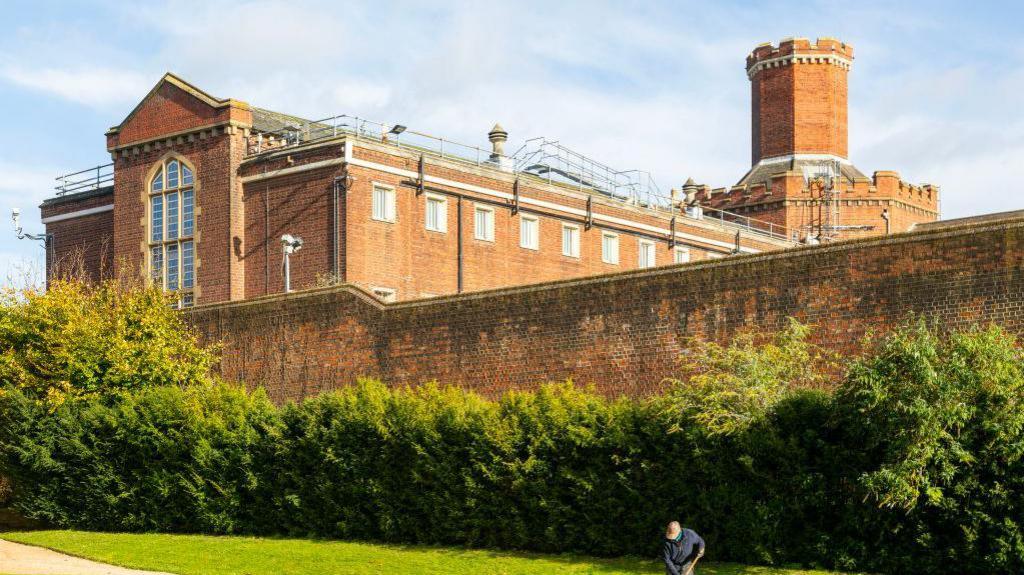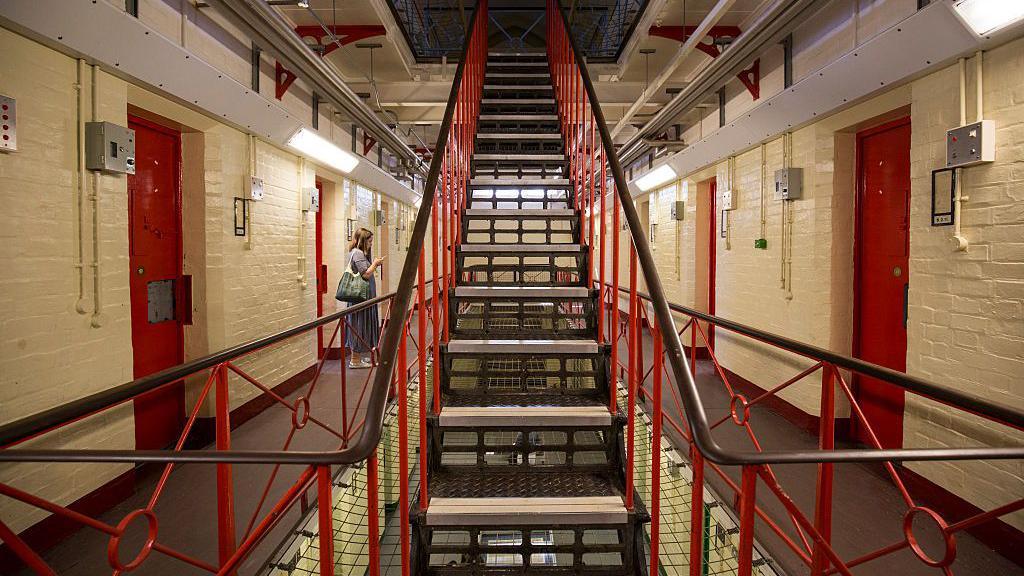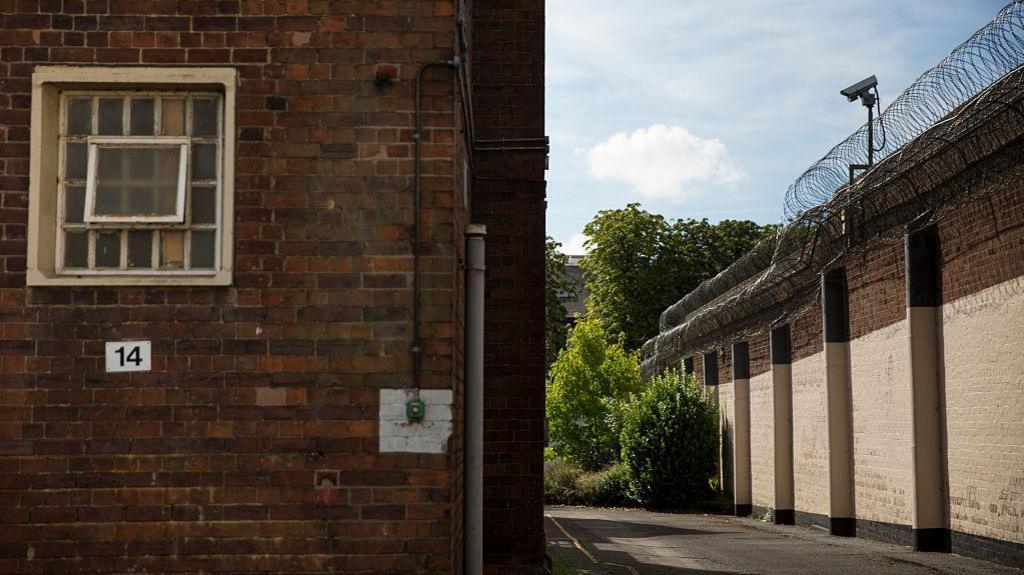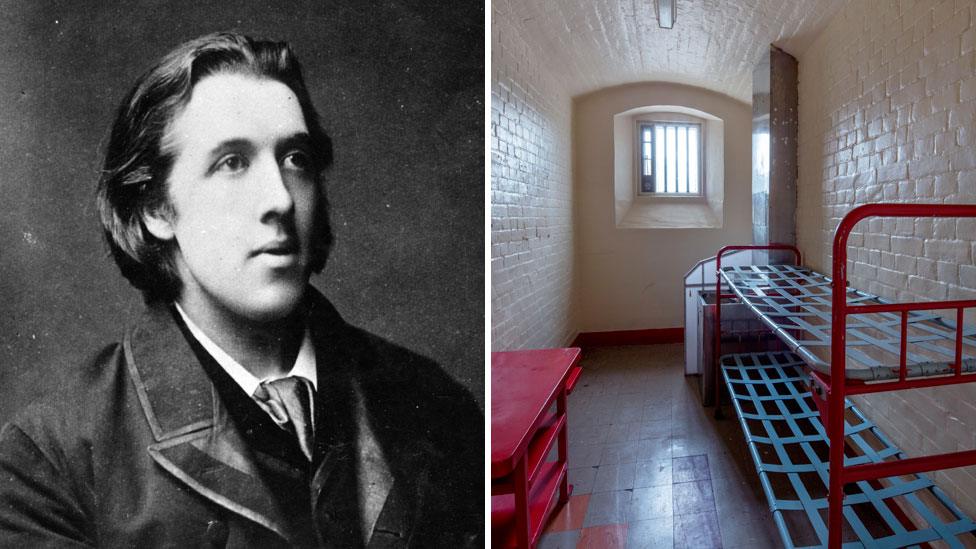Plans for prison that once housed Oscar Wilde revealed

Reading Prison has been empty for more than a decade
- Published
A prison where Irish writer Oscar Wilde was once incarcerated - effectively for being gay - is set to be turned into a museum and an art-inspired hotel, its buyers have said.
The Ziran Education Foundation bought Reading Prison from the Ministry of Justice (MoJ) for £7m in January.
News about the sale was met with a mixed reaction from residents, with some hoping for the site to be turned into an arts and performance space.
The foundation said it would work with the council’s planning department on its proposals and hold public consultations before and after an official application is submitted.
The last inmates moved from the prison, affectionately known as Reading Gaol, in November 2013.
A spokesperson for the foundation said it was "thrilled" to share its vision, which they added was based on three priorities - the integration of AI technology, collaboration with the University of Reading and making a positive contribution to Reading's culture and tourism sector.

The prison was opened to the public as part of an ArtAngel project in 2016
The foundation was launched by Chinese businessman Channing Bi with an aim of "promoting a compassionate, peaceful, and sustainable world through education".
Concerns had been raised by members of the public because, whilst the foundation's address is in Essex, its activities in the UK appear to be limited.
An MoJ spokesperson said security checks were made on the foundation by several government departments and organisations, as part of due diligence checks.

The last inmates moved out in 2013
A government spokesperson said proceeds from the sale would be reinvested in the wider prison estate.
The MoJ has not said how much it cost them to leave the prison closed for a decade, but an ITV report said it could have been as much as £3m.
Follow BBC South on Facebook, external, X, external, or Instagram, external. Send your story ideas to south.newsonline@bbc.co.uk, external.
- Published11 January 2024
